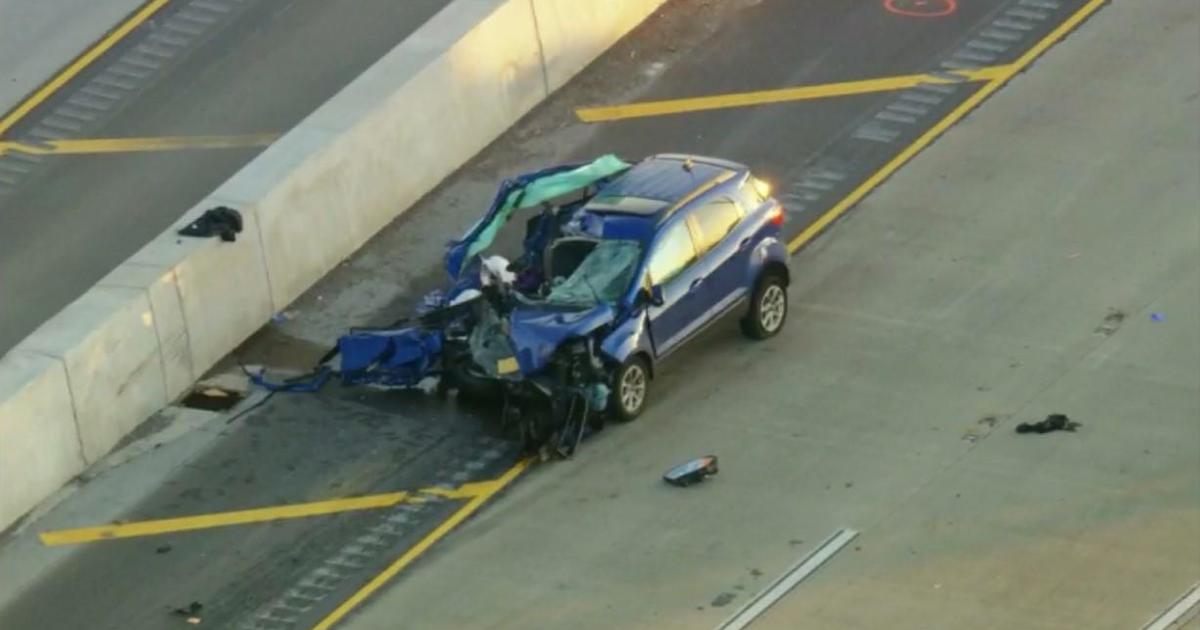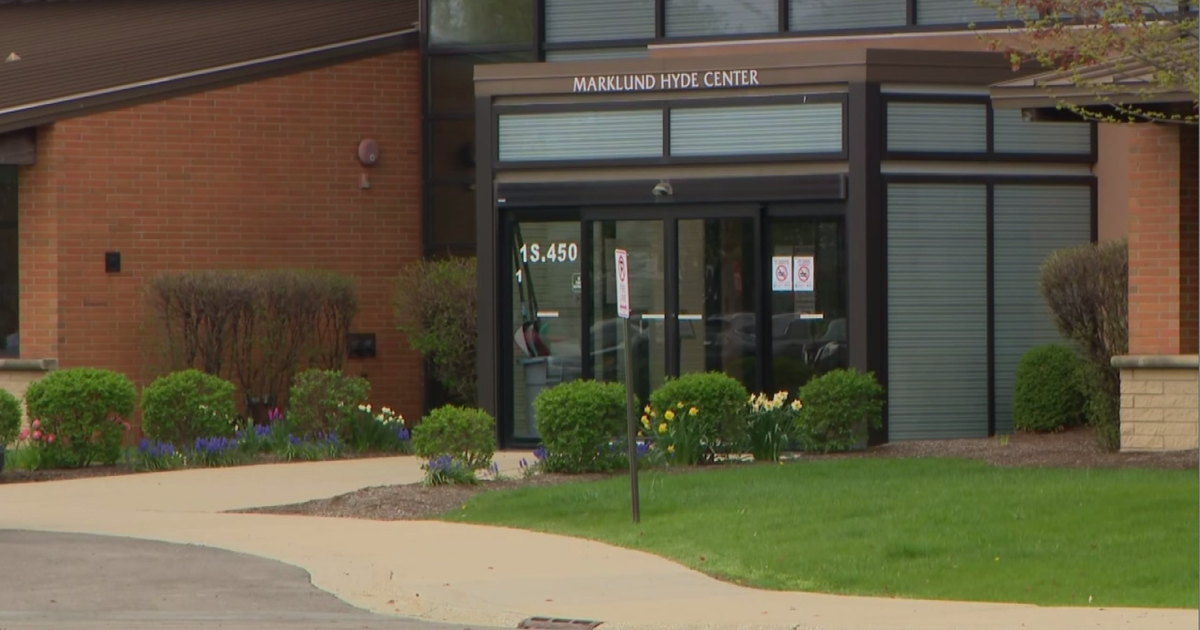Boeing CEO Admits 'Mistake' In Communication About 737 Max Warning System
(CBS/AP) -- Boeing CEO Dennis Muilenburg acknowledged the company made a "mistake" when it came to handling the cockpit warning system in its 737 Max planes before two fatal crashes killed 346 people, and prompted regulators around the world to ground the jets.
Muilenburg said communication with regulators, customers, and the public was not consistent and "unacceptable." He expressed confidence that 737 Max jets would be cleared to fly again later this year, after federal regulators review its fix to software implicated in both crashes.
The planes have been grounded for more than three months, after new flight software played a role in deadly crashes in Indonesia and Ethiopia.
The U.S. Federal Aviation Administration has faulted Boeing for not telling regulators for more than a year that a safety indicator in the cockpit of the top-selling plane didn't work as intended. Boeing and the FAA have said the warning light wasn't critical for flight safety.
It isn't clear whether either crash could have been prevented if the cockpit alert had been working properly. Boeing said all its planes, including the Max, give pilots all the flight information -- including speed, altitude and engine performance -- they need to fly safely.
But the botched communication has eroded trust in Boeing as the company struggles to rebound from the passenger jet crashes in Indonesia and Ethiopia.
"We clearly had a mistake in the implementation of the alert," Muilenburg said.
At the start of the Paris Air Show on Monday, Boeing vice president Randy Tinseth apologized to airlines and families affected by the deadly crashes in Ethiopia and Indonesia.
The Paris Air Show typically is an opportunity for Boeing to announce aircraft orders; but the Chicago-based company had no new orders in May and just one in April, and deliveries have plummeted since the 737 Max fleet was grounded.
While Boeing was in a visibly contrite mood at the Paris show's opening, rival Airbus launched a new long-range single-aisle jet, beating Boeing to a market that both aviation giants predict will grow.
Angry pilots
Pilots also have shown their anger that Boeing did not inform them about the new software that has been implicated in the fatal crashes. Muilenburg expressed confidence that the Boeing 737 Max would be cleared to fly again later this year by U.S. and all other global regulators.
"We will take the time necessary" to ensure the Max is safe, he said. The model has been grounded worldwide for three months, and regulators need to approve Boeing's long-awaited fix to the software before it can return to the skies.
Muilenburg called the crashes of the Lion Air and Ethiopian Airlines jets a "defining moment" for Boeing. But said he thinks the result will be a "better and stronger company." In the U.S., Boeing has faced scrutiny from members of Congress and the FAA over how it reported the problem involving a cockpit warning light.
The feature, called an angle of attack, or AoA, alert warns pilots when sensors measuring the up-or-down pitch of the plane's nose relative to oncoming air might be wrong. Boeing has admitted engineers realized within months of the plane's 2017 debut that the sensor warning light worked only when paired with a separate, optional feature, but they didn't report the issue for more than a year, after the crash in Indonesia.
The angle-measuring sensors have been implicated in the Lion Air crash in Indonesia last October and the Ethiopian Airlines crash in March. The sensors malfunctioned, alerting anti-stall software to push the noses of the planes down. The pilots were unable to take back control of the planes. Boeing told the FAA of what it learned in 2017 after the Indonesia crash.
Pilot Dennis Tajer, a spokesman for the union that represents American Airlines pilot, the Allied Pilots Association, said it's good Muilenburg was willing to revisit the cockpit alert problem and to acknowledge Boeing mishandled conveying information. But Tajer said he thinks Boeing made a series of unprecedented communication missteps that have "created a massive headwind to rebuilding trust."
No. 1 priority
Restoring trust in the Max is Boeing's No. 1 priority, Muilenburg said -- ahead of an upgraded 777 and work on its upcoming NMA long-range jet. The Max, the newest version of Boeing's best-selling 737, is critical to the company's future. It was a direct response to rival Airbus' fuel-efficient A320neo, one of the European plane maker's most popular jets. Airbus has outpaced Boeing in sales in the category.
The Max crashes, a slowing global economy and damage from tariffs and trade fights threaten to cloud the mood at the Paris Air Show. Along with its alternating-years companion, the Farnborough International Airshow near London, the Paris show is usually a celebration of cutting-edge aviation technology.
Muilenburg forecast a limited number of orders at the Paris event, the first major air show since the crashes. But he said it was still important for Boeing to attend to talk to customers and others in the industry.
He also announced that Boeing was raising its long-term forecast for global plane demand, notably amid sustained growth in Asia. Boeing expects the world's airlines will need 44,000 planes within 20 years, up from a previous forecast of 43,000 planes.
Muilenburg projected that within 10 years, the overall aviation market -- including passenger jets, cargo and warplanes -- would be worth $8.7 trillion, compared to earlier forecasts of $8.1 trillion. Both estimates are higher than the ones from Airbus, which sees slower growth ahead.
Airbus launches new plane
However, Airbus is heading into the Paris show with confidence. It's expected to announce several plane sales and unveil its A321 XLR long-range jet. That plane should will be ready for customers in 2023 and be able to fly up to 4,700 nautical miles.
Airbus chief salesman Christian Scherer wouldn't say how much the plane would cost to develop, but said it would be significantly less than building a whole new plane because it is an upgraded version of the existing A321. Right after the launch, the Los Angeles-based Air Lease Corp. signed a letter of intent to buy 27 of the new Airbus planes. Airbus executives said the Boeing Max crashes aren't affecting their sales strategy but are a reminder of the importance to the whole industry of ensuring safety.
Airbus' new A321 is a challenge for Boeing, which said Monday it's still working on plans for a possible jet in the same category -- dubbed New Midsize Airplane, or NMA. It would fill a gap in the Boeing lineup between the smaller 737 and the larger 777 and 787.
(© Copyright 2019 CBS Broadcasting Inc. All Rights Reserved. The Associated Press contributed to this report.)



